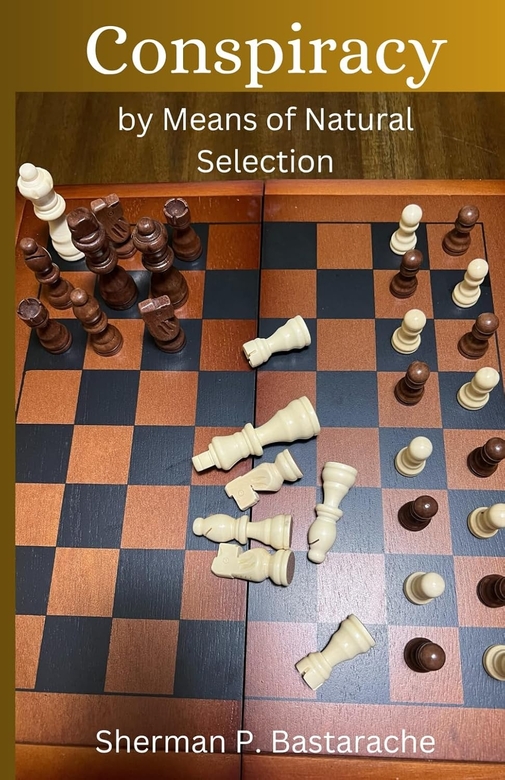
A poignant dissection of cognitive and cultural history and their dynamic relationship to fact and fiction, Conspiracy By Means of Natural Selection by Sherman P. Bastarache is an eye-opening contemporary thesis.
To achieve its stated purpose of interrogating how natural selection can create conspiring minds that, in turn, create conspiracy theories, this book delves deeply into cultural, evolutionary, and psychological trends across time, singling out points of overlap, conflict, and uncertainty before digging down into what those intersections and contradictions mean. Whether touching on Star Trek, quantum entanglement, Immanuel Kant, or anthropomorphic projection, this sprawling examination of thought, science, logic, and belief offers a cautious reframing of humanity’s perennial clash between faith and reason.
The mere phrase “conspiracy theory” summons images of 9/11 deniers, moon landing hoaxers, and flat Earthists, but in the context of this book, the umbrella term is expanded to any form of mass belief, ranging from governmental structures and gender norms to scientific dogma and the greed of capitalism. Attempting to synthesize the historically opposed perspectives of science and belief, the author’s tone is refreshing, particularly in his equal-opportunity skepticism of science, religion, political parties, and other seemingly immovable constructs of modern society.
Bastarache’s fascination with knowledge in every shape and size, from etymology and anthropology to theology, biology, and evolutionary theory, results in a compelling and sweeping treatise on our exalted position in human history. However, the book does make some sweeping generalizations that show the author’s implicit biases. In a manifesto like this one, that is to be expected, but some broad assumptions call into question the thesis on the whole, especially when the author is claiming impartiality. Bold statements like “Free will has been concluded to be non-existent based on determinism…” are too black and white, given this has not been empirically proven, nor peer-reviewed in any meaningful way. So while the stream of scientific nuance and historical context is packed with energy and fascinating detail, it can make for a series of unclear conclusions.
As a result, it can be difficult to sift through just what is opinion-based and fact-based information, especially when the author is not entirely skeptical of his own worldview. There is reference to this contradiction at the end of the book, but the admission feels like an afterthought, or a clever loophole of accountability. Similarly, the direct references at the end of the text are limited, and feel insufficient for this dense and extensive text, not to mention the theories and experiments the author admits are pulled shakily from memory.
From an editorial perspective, there is ample room to tighten up tangents and side notes – early on, it states, “I hate to add too many asides, as they tend to break up the flow of context,” but that is what frequently occurs, despite the preemptive nod of self-awareness. There are also scattered grammatical and spelling errors (“spued” vs “spewed,” “Teutonic” vs “tectonic,” and so on).
Apart from these issues in execution, Bastarache’s far-ranging proposal is thought-provoking and fascinating, with the sincere and noble intention of redefining our timeless dialectics of faith and reason, which inspires the reader to further research these complex topics.
Book Links
STAR RATING
Design
Content
Editing
Get an Editorial Review | Get Amazon Sales & Reviews | Get Edited | Get Beta Readers | Enter the SPR Book Awards | Other Marketing Services























Leave A Comment